Media | Articles
You always remember your first police chase
It’s been years, but I remember my first high-speed chase. I suspect most police officers do. This was the early 1990s, and I was working for the Dallas Police Department, driving a Ford Crown Victoria when we asked dispatch to run the license plate on an older brown Oldsmobile Cutlass. In this era, all a thief needed was a hammer and a screwdriver to pop the brittle steering column and start the car.
“Is that car occupied?” the dispatcher radioed. Yes, it was. That four-word “phrase that pays” was usually the first indication we were dealing with a stolen car. We had to wait for the dispatcher’s insight because our computer terminal typically lagged after theirs so badly that in one particular Friday night, we found, and lost, four stolen cars. Our computers in the field didn’t provide confirmation they were stolen until the cars were all out of sight.
This was a wet night, hardly ideal for anything much above the speed limit. The Cutlass driver steered onto Interstate 30. He stayed mostly in the right lane before veering off at an exit in East Dallas. “He’s trying to go home,” my partner said.

My partner was right. We sped around the mostly deserted surface streets on Beat 114 before the Cutlass turned into an alley. The driver bailed out and ran. The rain picked up as my partner went after him while I checked the Cutlass: Empty, broken steering column with a bandana tied around it to hide the broken column. Lots of younger thieves did that, not realizing that the bandana was a lot easier for us to spot in traffic than a smashed column. I left the car to join my partner as he climbed the steps to an older frame house.
The alley was mostly dirt, so we were following the driver’s muddy footprints, right up to the door and inside. His footprints led right into the closet in his bedroom. It was a 16-year-old kid, but he looked much younger. My handcuffs barely fit his skinny wrists.
Marketplace
Buy and sell classics with confidence
It was his third arrest for auto theft. He said that while in juvenile detention, he had learned to steal Nissans and Hondas. He gave my partner and me a lesson on stealing cars from the back seat, on the way to the jail.
Example: This was the era of The Club anti-theft device, which locked on the steering wheel and extended down to the brake pedal. If you had a small pair of bolt cutters, he said, you could snip a notch out of the steering wheel and remove the Club. I learned a few things that night.
I was, and am, ambivalent about police chases. Back then at least, in the era preceding multiple airbags in cars, more officers got killed in their cars than by gun violence. Chases are profoundly dangerous, not just for police but for the bad guys and the general public.
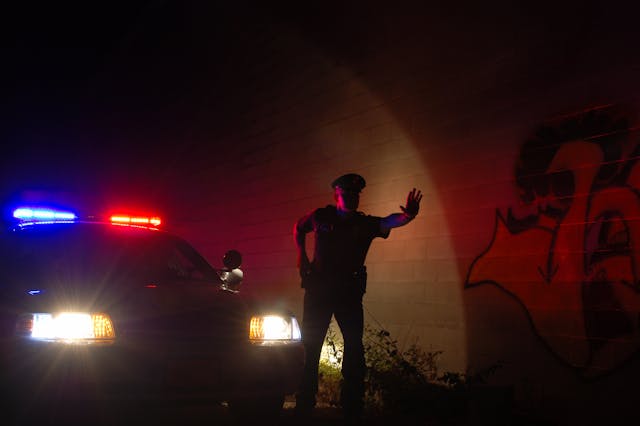
One of the reasons police engage in pursuits of this nature is that it presents an unfortunately rare opportunity to actually catch a violator, in the act, doing something illegal. Police are so often, as one senior officer told me, “Just armed report-takers. We show up after the crime has been committed. If somebody’s in a stolen car, he’s committing a felony, and he needs to go to jail.”
On Patrol: Live airs on the Reelz cable network; it’s a three-hour show of live police work from eight departments across the country that runs on Friday and Saturday nights. It’s rare that the show doesn’t air three or four pursuits a weekend, and they all still scare the hell out of me. We forget that the driver of a stolen car is more likely to be young, relatively inexperienced behind the wheel, and it’s possibly the very first time they’ve driven that model.
Not all officers are experts in this scenario, either. Many of the cadets I graduated from the academy with were training for their first real job. One, I recall, had never driven anything but her stick-shift Honda. Despite some excellent but too-brief driver training in the Dallas Police Academy, the majority of our cadets would have to learn—on the job—how to drive a big Ford or Chevrolet or Dodge at Code 3, lights-and-siren speed.

How police departments handle car chases varies. Some simply won’t do it for anything less than a murder or a bank robbery. Others will follow as close as they can, with lights and siren off, hoping to keep the car in sight without actually chasing, sometimes until a helicopter can take over the surveillance. We had one helicopter for all of Dallas, and it was usually tough to get air support.
There’s an old saying: “You can’t outrun the radio.” That’s not always true, and the criminals know it. Even if we find the car later, abandoned, we have to be able to place the driver in the car to make an arrest. Fingerprints help, but in my experience, getting the overworked crime scene specialists to deal with a stolen car was hit-or-miss.
More and more often, especially on the state police level, departments are using PIT (precision immobilization technique) maneuvers to try and stop the fleeing car before someone gets hurt. A pit usually involves trying to hit the fleeing car in the right or left rear quarter panel, causing it to at least spin, and hopefully stop.
I’ve seen some truly awful PITs on Cops and On Patrol: Live, but the maneuver is a lot harder than it looks. I was lucky enough to attend two different offensive driving schools at which I got to practice; properly executed, you put the fleeing car into a 90-degree skid and maintain contact with the car right up to the stop, possibly pinning it against a curb or a fence or a berm, or into a ditch. But, as I said, it’s unusual for things to play out just the way you planned them to.
I don’t see an end to drivers running from the police. If it’s drugs they’re worried about, sometimes the driver stops only after swallowing them. If it’s an illegal firearm, they might throw it out of the window. Usually, though, the chase continues to its illogical conclusion. It’s scary. The mean streets are still mean.
***
Check out the Hagerty Media homepage so you don’t miss a single story, or better yet, bookmark it. To get our best stories delivered right to your inbox, subscribe to our newsletters.

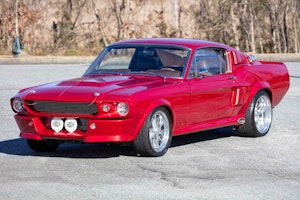


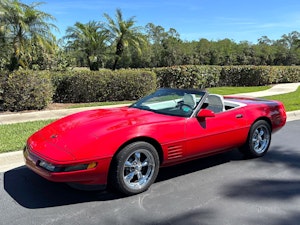

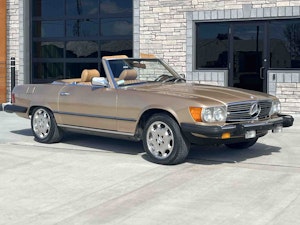

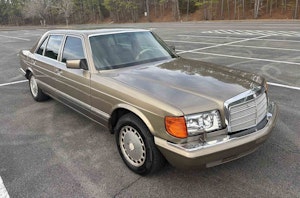




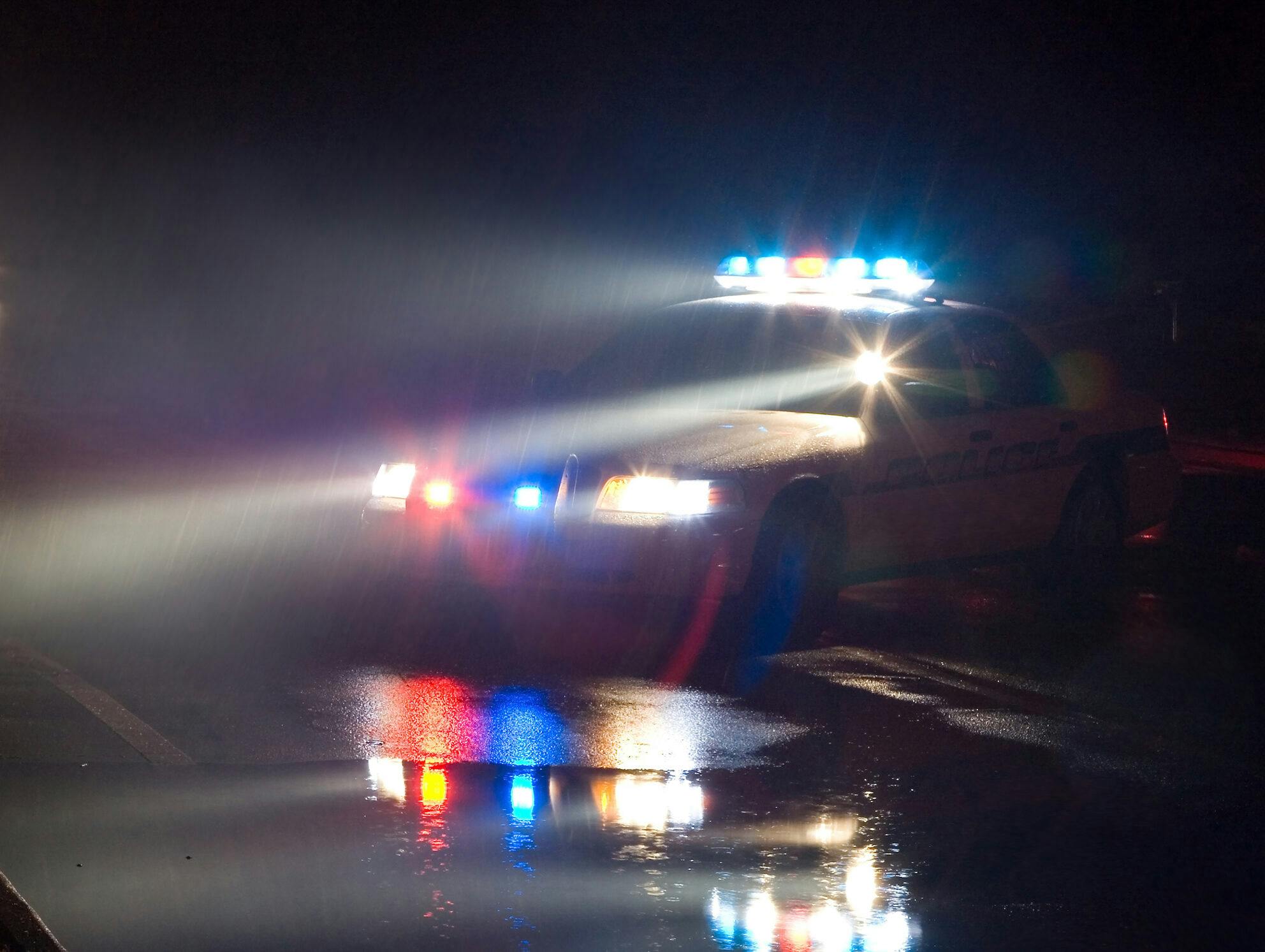
I’m not going to lie, I love watching Cops and the likes on youtube and seeing bad guys be made to comply. I love the takedowns, tazers, and the pit maneuvers.
Mississippi’s capital city is what some of us call a sanctuary city for crime. Police are told not to chase for anything. Surrounding police forces chase, and a lot of times end up chasing folks back into Jackson. Then when there’s a wreck or property damage, there is public outcry against the neighboring police force. Jackson is one of the most dangerous places per capita, and folks there don’t realize that one of the reasons is they don’t give their police a leg to stand on.
Interesting to read the officer’s point-of-view when it isn’t be glamorized in a movie, book or TV show. 👍
Not what I thought it was at all. I still remember dusting that Iowa State trooper and hiding in my cornfield for 4 hours…..
Mr. Smith, I agree with your sentiments. When Uncle Sam drafted me, I was asked in basic training what my skills were, if any. I proudly said “Truck driver!” In the Army’s infinite wisdom, they sent me to Military Police school (apparently, a college education is worth something to somebody.) I learned a lot from the Uniform Code of Military Justice and about myself. And I will never forget one evening in (formerly) West Germany when a very large US service member had self-medicated on an unknown substance and had stabbed several other service members in a drug-fueled frenzy in a civilian bar. First on the scene was a German Polizei and his attempts to restrain our large (over six and a half feet tall and roughly 250 pounds) GI were fruitless. So, he put nine rounds of 9mm ball ammo in him. No luck. My partner put one round of .45 ball in his chest and the party was over. He didn’t die, but he was severely incapacitated and we were able to place him in handirons for the ride to the hospital. The point I’m trying to make is even the people that you think are on your side aren’t always.
Anthony Thomas – great story in and of itself, man.
Good story. I can imagine the early days with radio and computers was a test of patience while trying to verify the perp.
My first ‘high speed’ chase was in 1997 on the Boulder Turnpike, a four lane jersey barrier divided highway that runs from Boulder to Denver. Dispatch aired a stolen vehicle report from the biggest mall (at that time) in Boulderof a Buick Grand National, last known direction of travel Denver bound. I happened to be right by an on ramp to the turnpike. Not more than a few minutes later what do I see but a black Grand National, weaving in and out of traffic at what I visually estimated a speed in excess of 80 mph. This where things get interesting. I slam my patrol unit into gear and get on the Turnpike as soon as the car past the on ramp and started the pursuit. My assigned patrol unit at the time was a ‘police package’ Ford Tortoise (aka Taurus). I was seriously outengined. Divine intervention intervened when a shift supervisor came on the air and called it off because of time of day (around Christmas time) and traffic density. The engine in my car blew during the supervisor’s transmission. The engine blew so badly that there I sat immobile in the number 1 lane with my overheads going. The only solace that I could take from my embarrassment was that said pos patrol car had about 60,000 miles on it so I knew that fleet services would decommission it and send it to the boneyard where it belonged all along.
Came on in 1971 and we chased everyone that wanted to try for the brass ring- Mostly in older Crown Vics, The idiots got a tune up, the repentant usually got a warning and believe it or not there was very LITTLE recidivism!
This was before drugs and the weapons they brought with them. City police force that now has no time for V&T unless its really bad.
The police in my hometown were notoriously corrupt. From theft of “evidence” and seized weapons to shake-downs.
Any time I hear or read about a LEO glamorizing “tuning people up”, I harken back to that little berg and their corrupt police department.
Enjoy your public service pension.
Thank you, I do enjoy my public service pension (which, by the way, cost me 10% of my salary, countless missed family events, and nearly my marriage but that’s a story for a different venue).
No , I haven’t tuned up anyone, and don’t condone it either. In fact, I bailed out of most chases as I hit the border of our nearby big city because they took Chris Rock seriously (“if the police have to chase you they’re bringing an ***-kickin with them”). They’d beat your arrestee then scatter like cockroaches and leave you holding the bag for their handiwork.
Chases suck. Everyone involved does something stupid, sometimes intentionally, sometimes not (no, I don’t want to talk about chasing a motorcycle for speeding in an urban area on July 4th but I will open up about freeing a kidnap victim). Most of my chases ended in a crash, usually minor and most often to prevent something worse down the line. Each time I spent days afterward second-guessing everything I did. I found chases to be exhilarating but not in a good way.
Today the pendulum has swung too far. We can’t chase for anything other than a violent crime. As a result, only good guys stop because the bad guys know they can rabbit without consequence. Respect for the law is a noble principle but for a certain portion of our population we need to settle for fear. Now that guys don’t fear consequences, well, we see what’s happening with that.
Respect for the law goes both ways…
I live in an area (university neighborhood) where modded cars, trucks, and bikes are as numerous as sand on the beach.
From bikes and Mustangs with open – or near open – exhausts to pick-ups and jeeps lifted so high that their bumpers are perfectly aligned to motorists’ head height driving most everything else on the road, I don’t see police enforcing the laws that regulate these obnoxious (in the case of the exhausts) and dangerous (lifted rigs) mods.
IMO fear is only necessary when one fails – or doesn’t care to – earn respect.
Oh if only it were only so simple. Respect isn’t earned through strict enforcement-“why aren’t you out catching real criminals…” Harsh enforcement can lead to a lack respect and instead instill fear, pretty much the opposite of what you suggest.
Some people simply will not respect the rules of society. The issue I referred to in my original post is that there is no fear of repercussions stemming from bad behavior, not fear of the police.
My first chase happened shortly after getting out of the academy. My partner and I observed a group of motorcycles driving like idiots on the streets of Chicago. Back then 1967, all we had was the gumball on the top of the car and we put it on and attempted to stop them, but off they sped with us in pursuit. We put it out on the radio and several more squads joined in, and we were able to stop them. Here is the kicker, one of the riders was in my same class at the police academy. I guess he was just used to running from the police and forgot that now he was the police.
I was expecting the chase e point of view here.
I never ran but I have done the turn off twice.
Once when me a a buddy were going to a cruise in years ago. We were goosing the throttles. but not racing. It may have look like it but we were still in the limits. A sheriff came over the hill and pulled into a drive to come after us. His lights were in the rear window. The only one in the county that way.
We went over the hill and my buddy looked over at me like now what. I pointed to make a red turn on right into a new parking lot. We pulled in and stopped and got out. The sherrif got held up by traffic as they could not see his lights when he tried to back out. We finally saw him come over the hill flying. So we sat there till later and when dark we pulled out and continued on our trip. Via back roads.
Another a trooper came after me but I was around a corner before he could turn. I went into a neighborhood and drover around again till dark. I was not speeding but I had as bra on my car and I was almost home so I did not stop to open the flaps on the lights.
The best was when this guy wanted to race me so I took off hard at one light to stop at the next. I did not want to race and my detector was going off.
I hammered it hard for 100 ft and he kept in it. About a half mile up he passed the cop. I let the cop out and the chase continued. He finally stopped him and I waived when I went by.
I never was into street racing and I never would run from a cop. My cars looked like I was doing something wrong but I kept a lid on it. Just never wanted to get a ticket or go to jail.
Besides the guys that got me into cars were officers and they would have given me a time over it.
Yes, hyperV6, true. I’ll get off my soapbox now, sorry…
In 1979 my 1974 Super Beetle beat a 1976 Impala 9C1 in a chase-sort of. I was rolling 60 in a 45 on a downtown expressway. I knew I was caught because he lit up as soon as I passed him. I looked again and I saw he was still on the inside shoulder, caught in traffic. I sped up (okay, gathered a little more speed-it was a Beetle after all) as I approached the next interchange. He caught up to with me soon after. I saw him as he crossed over me on the bridge, headed northbound. I had picked southbound, and he put his money on northbound.
VW 1, 9C1 and Motorola zero.
Mike drop.
Got pulled over by a CO state trooper when I was doing 85 in a 55 zone back in 78 when I was in the AirForce. On a 96 hour pass. Blowing past traffic, 2 miles from my folks house. Still had my fatigues on. He said “If I write you up, Id get writers cramp. Park this thing and I dont want to see you again…” He didnt.
By 1966, I had a ’65 Sport Fury with the 365 horse 426S, or Street Wedge, and the 833 4-speed trans, and was on NM-522 returning to my home in Pueblo, CO, from Albuquerque where I was in grad school at the University of New Mexico. The San Luis valley begins north of Taos and the highway which had wound along the Rio Grande in its Gorge became 80 miles of mostly straight two-lane road with just a very few long, sweeping curves. It was a beautiful weekday morning and I was northbound at an easy 80 MPH or so (the speed limit then was 60) when I came upon an old Chevy pickup plodding along at about 55 (at the most) with another one parked on the southbound shoulder just about 10 miles from the Colorado line. Nothing unusual, as northern New Mexico was, and still is, a pickup graveyard, so I just zipped around him. However, as I passed him, I noticed one of New Mexico’s finest tucked in behind the parked truck. No biggy, and I just continued on my way. Evidently the gendarme thought otherwise because in a flash he had turned his ’65 Fury I (383 CID/325 HP) around and had his lights flashing. I really didn’t think I had upset him and was very surprised when I slowed to let him pass, he didn’t. I indignantly pulled over and jumped out to ask “Why?” Bad move! He immediately pulled out his trusty .38 cal “pohleese special” and started his “Barney Fife” routine. After he calmed down he started in on that he was investigating an accident and I seemed to be going “plenty” fast. I countered with he didn’t have his flashers on, was parked close behind that truck (which was one of the several usually stalled on the shoulders of New Mexico highways), and I was simply passing a slower moving vehicle on a two-lane road so I was getting out and around ASAP. What I thought was my coup de gras was: “Officer, if I thought I was doing anything wrong, you never would have caught me.” I’ll never forget his retort: “Boy, ain’t you never heard of radio?” End of discussion.
My first and only chase was from the other perspective. 72 Skylark with a 400 Ram Air from a totalled 69 Judge. I believe it had 2.73 gears in the original 10 bolt differential. The chase was in about 1978 and the state patrol was running Dodge Diplomats I believe. Late at night on a deserted stretch of a controlled access state highway in Northeast Ohio. I went past the trooper at over 100 mph with 10 miles or so to the next exit. It was just who could go faster. I won, but even my teenaged mind realized the absolute stupidity of running after the fact. Traffic was no issue, but deer or tires being driven well beyond their speed rating could have made for a very short life span. Never did it again.
Dips topped at about 110 with a light bar. You’d have a 3/4 mile (40 seconds) head start before he even matched your speed and more than 1.3 miles (76 seconds) before he hit 110. I’m bad at math but I think it’s around the 12 mile mark that he’d catch up to you.
Not even worth the bother but I guess you’re lucky he didn’t have someone up the road. Remember, no car beats a Motorola.
I used the PIT to casually work my way through the pack in figure 8 races. The leaders showed me how to defend against it.
Actually had PIT used against me while I was a passenger on an unregistered motorcycle. Going about 50, tumbled across a grassy area and being teens at the time we got up uninjured to face the consequences.
I’m a retired 911 Dispatcher after 33 years of service. After working all three shifts, traffic pursuits happened on all of them. Clearing radio traffic and getting backups to assist is just part of the story. Multitasking is the most important skill a Dispatcher can have. You have to plan ahead for a scenario if it continues and escalates. The last study I heard was the National average a Dispatcher stays in the job is four years. Poor pay, working all shifts and high stress is not for everyone. And don’t forget everything you say and do is recorded and scrutinized by supervisors, people your dispatching, attorney’s and the press/public.
After a time, many cops feel hopeless. The job they took to help people doesn’t always turn out that way. Well at least we got the chance to try.
Dispatchers feel helpless. They’re a bystander to every tragedy that comes across their line, responsible for making sure everything gets where it needs to go, and then…it’s out of their hands. They can only listen (and pray) that the work they’ve done was enough, that the resources were right, and then sometimes, hopefully most times, it works out right.
Thank you, Pete and friends, for keeping me alive these past (almost) four decades.